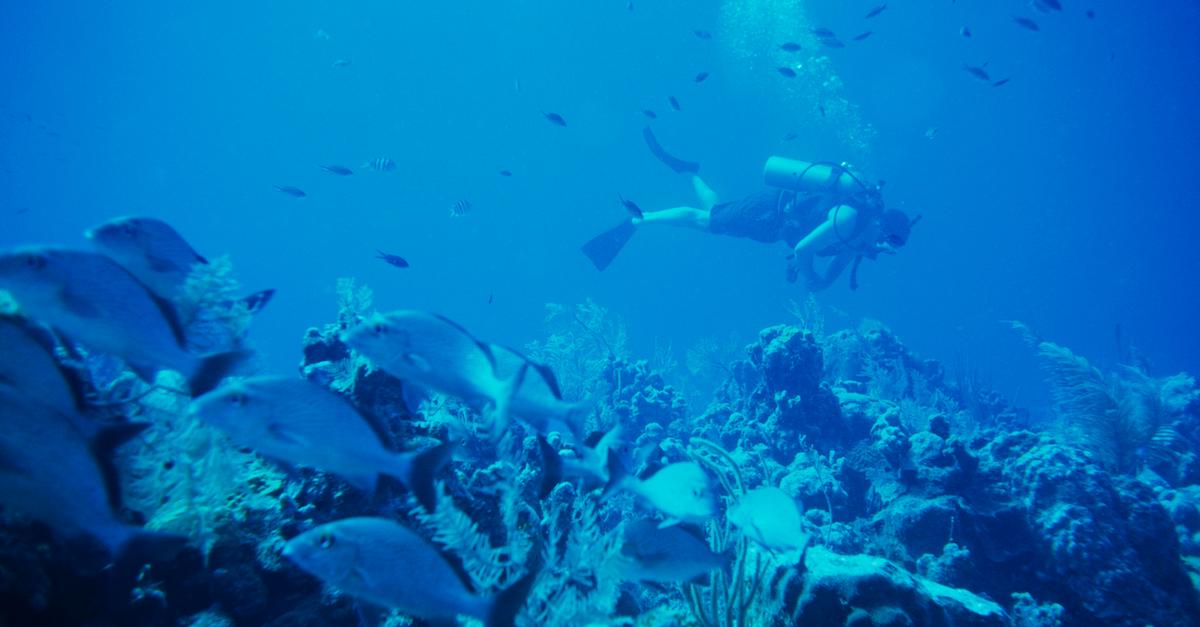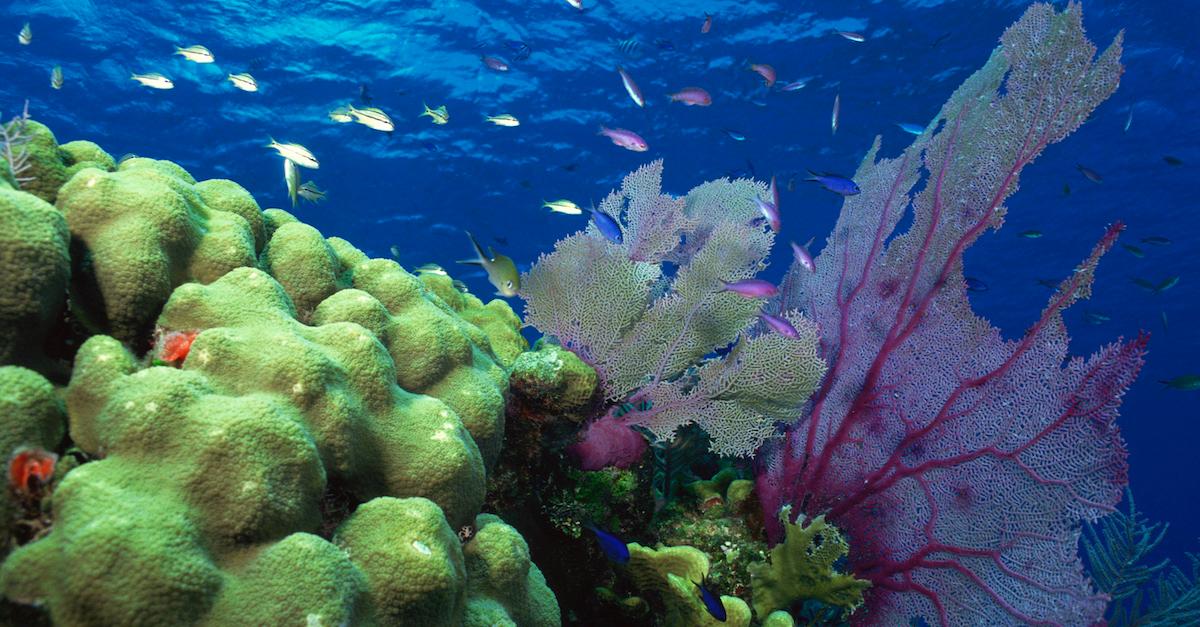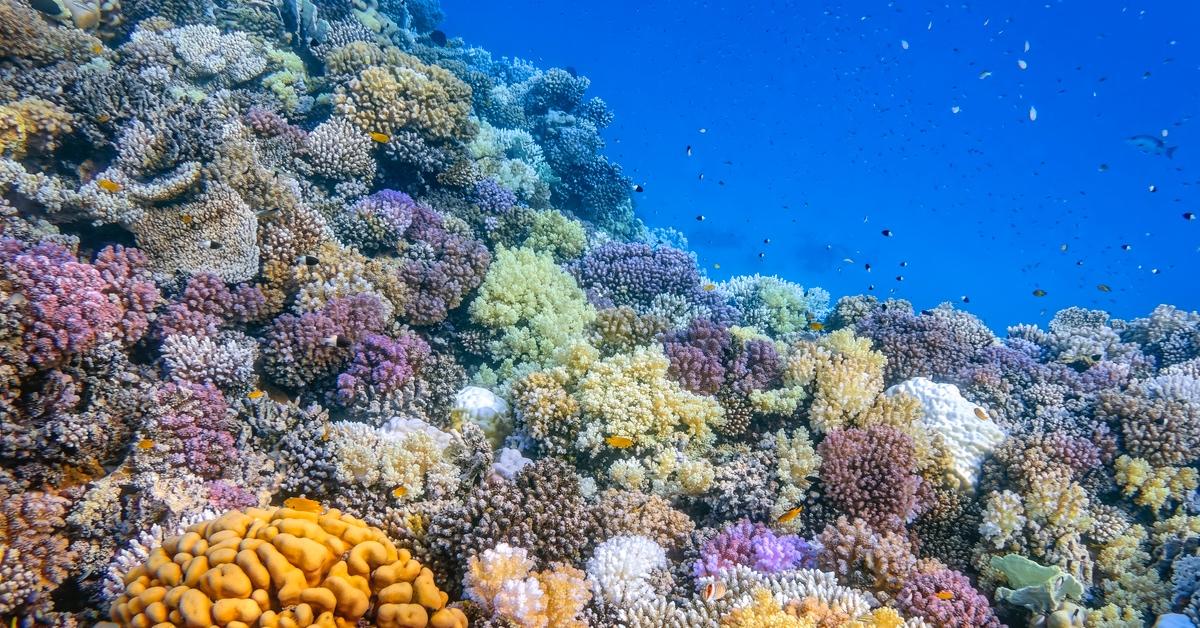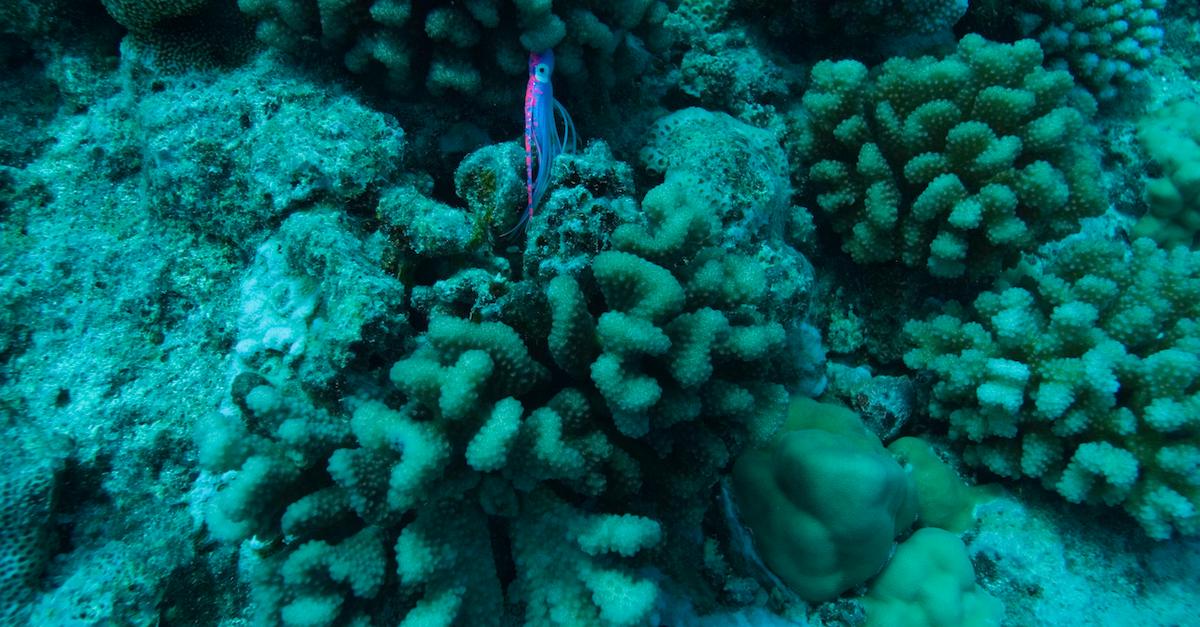[ad_1]
“On account of the world’s oceans proceed to heat, coral bleaching is turning into extra frequent and extreme.”
Article continues beneath industrial
Inside the event you haven’t in any respect heard of coral bleaching, maybe you’ll have seen harrowing photographs and flicks of the Good Barrier Reef, completely void of shade in sections. However what’s coral bleaching, why is it so detrimental, and what’s inflicting this phenomenon? Preserve studying for every issue it’s best to search out out about coral bleaching, outlined.

Article continues beneath industrial
What’s coral bleaching?
Coral bleaching takes place when adjustments in residing circumstances happen, akin to adjustments in water temperature, overexposure to daylight, or low tides, based totally on the Nationwide Oceanic and Atmospheric Administration (NOAA). Coral expels the algae residing in its tissues, often known as zooxanthellae, and “bleaches” or turns into white.
This takes a toll on account of coral reefs make up complete undersea ecosystems, offering a habitat and even meals present for fish, mammals, and vegetation alike. With out the coral, these animals die off, too.
Whereas coral bleaching wouldn’t technically kill the coral, they do develop to be in danger for hunger and illness, as per the Good Barrier Reef Basis.
Coral residing circumstances returning to widespread does enable for the coral to slowly recuperate from bleaching, nonetheless with shortly warming world temperatures, the pliability for coral to recuperate from bleaching is attempting so much a lot much less and fewer most probably.
Article continues beneath industrial
Optimistic organizations such on account of the Coral Restoration Basis and the Good Barrier Reef Basis have reef restoration duties underway utilizing cutting-edge expertise like cryopreservation. Nonetheless, it is unclear whether or not or not or not these restoration efforts will probably be sufficient all through the face of native local weather change.

Article continues beneath industrial
In 2023, the Nationwide Oceanic and Atmospheric Administration alerted residents of a mass coral bleaching occasion.
Though mass coral bleaching occasions have been occurring for years, in April 2023, a report from NOAA describes a fourth world coral bleaching occasion going down in each single elementary ocean basin.
Derek Manzello, a coral reef ecologist who coordinates NOAA’s Coral Reef Watch Program, acknowledged in a press launch, “On account of the world’s oceans proceed to heat, coral bleaching is turning into extra frequent and extreme.” He added, “When these occasions are sufficiently extreme or extended, they’ll set off coral mortality, which hurts the individuals who rely on the coral reefs for his or her livelihoods.”
Article continues beneath industrial
Based on the Worldwide Coral Reef Monitoring Neighborhood in a 2020 report, coral reefs are furthermore essential to human life, and supply an estimated $2.7 trillion financial worth. In addition to they help a minimal of 25 p.c of all marine species.
The final word world coral bleaching occasion began in 2014 and lasted till 2017, per NBC Information. All via that point, higher than 56 p.c of all reefs skilled temperatures which may set off bleaching.

Article continues beneath industrial
U.S. group Coral Reef Watch warns that report world warmth has put over half of coral reefs weak to bleaching.
Based on The Guardian on July 31, 2023, Coral Reef Watch shares {{{that a}}} whopping 73 p.c of the planet’s coral reefs have develop to be scorching sufficient to start out out mass bleaching. Since February 2023, the globe has been admit a fourth mass coral bleaching occasion, the second in ten years.
In mild of this information, coral scientists are urging for reformed concepts about how one can defend coral from further harm. Prof Tracy Ainsworth, the vice-president of the Worldwide Coral Reef Society educated the outlet, “Now we’re at some extent the place we hoped we’d not be. Now we’re asking, what can we do now?”
[ad_2]
